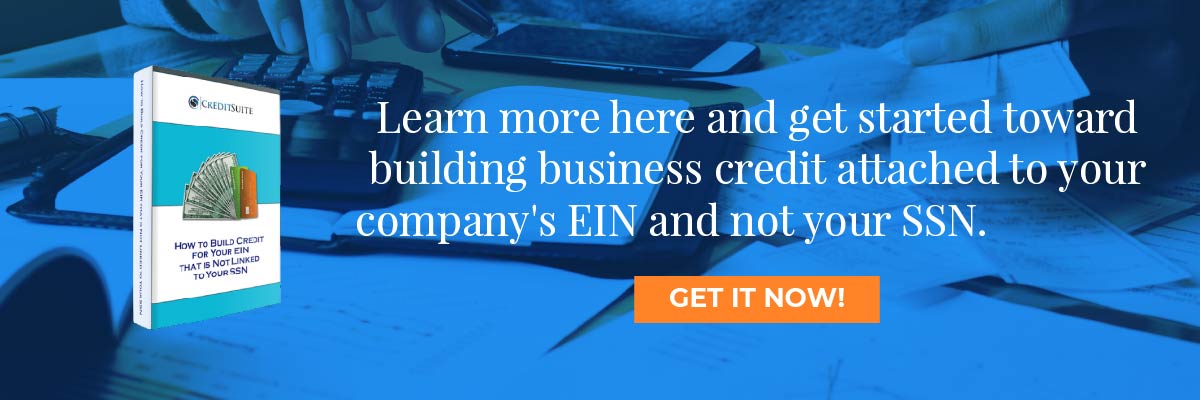- Connect With Us!
- (877) 600-2487
- info@creditsuite.com
How to Open a Business Credit File with Experian – This is Foolproof!
Published By Janet Gershen-Siegel at February 16th, 2018
Open an Experian Business Credit File – Yes, You Can!
Do you need to know how to open a Experian business credit profile? One of the big three credit reporting agencies, Experian keeps business credit profiles on 99.9% of all United States firms. It boasts the credit industry’s most all-encompassing data on small and midsize firms.
The honest truth is; your small business is probably already has a listing on Experian.
According to Experian, all of the data in any given Experian business credit file springs from third party sourcing. Accordingly, you cannot add any facts to your business credit profile However; you can still go over your profile and needless to say notify Experian with regards to any inaccuracies.
By the way, the other two big business credit reporting agencies are Equifax and Dun & Bradstreet, which has PAYDEX.
Open a Experian Business Credit Profile: Business Owner Profile
In addition, for a smaller in size firm, Experian will include a business owner profile. So this is to prove the relationships between you, the individual, and your small business.
Experian’s Business Owner Link is a part of automatically connecting the credit history of over 5 million business owners to your business credit history.
This makes it easier for your creditors to get access to a Business Owner Profile on small business accounts. It also makes it simpler for your creditors to determine your overall creditworthiness.
Open a Experian Business Credit Profile: Experian Products
Experian sells a number of products which you can use so as to keep track of your business’s credit.
Business Credit Advantage Plan
So, this one is presently $149 monthly and features mobile-friendly alerts and score improvement suggestions.
Profile Plus Report
And this report is currently has a price of $49.95 and it consists of in-depth financial payment information and predictive information on payment behavior.
Credit Score Report
Now, this is the least costly of the reports, currently with a price of $39.95. This standard report includes detailed company and credit information, and summary financial payment information.
Valuation Report
And finally, this report at present costs $99. It displays the worth of your firm and features Key Performance Indicators. It also shows your company’s fair market value.
Learn more here and get started toward building business credit attached to your company’s EIN and not your SSN. Open an Experian business credit profile today!
Open a Experian Business Credit Profile: Premium Corporate Profiles
Experian also furnishes (for a fee) premium corporate profiles. These enhanced profiles contain added information, including sales figures and size. The profiles also contain contact details, products and operations.
And they have a credit summary, and any Uniform Commercial Code (UCC) filings. More data includes fictitious business names, plus payment and collections history.
Apart from the data kept in their standard low-risk corporate profiles, these premium profiles have information on credit inquiries completed in the most recent nine months. And they also include UCC particulars, as well as Standard & Poor’s financial information.
Open a Experian Business Credit Profile: Credit Alerts
Obviously, you can subscribe to business credit alerts. Experian’s Business Credit Advantage program can work as a self-monitoring service. You get limitless access to your company’s business credit report and score.
You can use this tool for proactively managing your business credit. Alerts are sent for:
- Company address changes
- Updates in your business credit score
- Credit inquiries on your business profile
- Newly-opened credit tradelines
- Any type of USS filings
- Collection filings and
- Any public record filings, like liens, bankruptcies, and judgments
Open a Experian Business Credit Profile: Bonus: A Look at an Experian Report
Because Experian reports on both commercial and personal credit, a lot of this section of the article applies to managing your personal credit as well.
Let’s look at an Experian business credit report.
Report Sections
The report divides into sections.
Identifying Information
The report divides into sections. The first, as you might expect, contains basic identifying data. So this includes business name and address. But it also includes any ownership information.
This section also lists key personnel and the type of business. It also contains how long it’s been operating. And it has the number of employees, and the amount of annual sales.
Learn more here and get started toward building business credit attached to your company’s EIN and not your SSN. Open an Experian business credit profile today!
Payment Information at a Glance
Next is an abridged section with the current days beyond terms. So those are late payments. It also has predicted days beyond terms.
This section also provides an overall trend along with data points like the lowest and highest balance for the past six months. It also includes the current balance.
By including the highest amount of credit extended, the report gives an idea of the highest credit utilization rate for your company.
This portion also shows the number of payment trade lines (lines of credit) your business holds. It also includes the number of times any business entity has made an inquiry into your credit history.
It also has any UCC filings. These are liens on file to support loans. The summary also contains a relative percentage showing the percent of business doing worse than yours. It also includes how many bankruptcies you have. Further, it includes the number of liens and judgments.
Credit Summary
Next is the credit summary This shows your company’s Experian credit score and also links to information on what goes into the score and tips on how to improve it.
Payment Summary
The next part is the payment summary. The section includes line graphs for monthly and quarterly payment trends, and it conveniently shows where the numbers come from. The monthly payment trend is even graphed as against the industry average.
Just below this pair of graphs (and their supporting data) are three bar charts. They show continuous payment trends (a trade line on report for over six months). And they show newly reporting payment trends (a trade line on report for the first time in the last six months). They also show combined payment trends.
So this is the account balance for those combination trade lines.
Trade Payment Information
The next section is all about how your company has done with its payments. So it is broken down into credit card and leasing accounts. It also has trade lines on file for at least six months . And it has any updating activity during the last three months. Another part is aged trades.
So the last are accounts not updated within the last three months. This information is broken down by supplier category, with payment trends at the bottom.
Inquiries
Next up are inquiries into your business’s credit. There is a summary by type of institution doing the asking by the month when they asked.
Collection Filings
If your business has any collection filings, the listing is here by date, collection agency name, status, and amounts disputed and collected. It also includes the closed date, if applicable.
Collections Summary
Just below the collection filings section, the summary is fairly self-explanatory.
Learn more here and get started toward building business credit attached to your company’s EIN and not your SSN. Open an Experian business credit profile today!
Commercial Banking, Insurance, Leasing
This section shows whatever Experian knows about your company and its relationships with these types of institutions. The data include what any credit was extended for, and how much credit was extended. It also shows when the loan began, and the remaining balance if applicable.
Judgment Filings
Next the report shows basic legal information. This includes the court where a judgment is on file, the date, and how much it was for.
Tax Lien Filings
Tax lien filing information is similar to judgment filings except that it shows a filing location, rather than a court.
UCC Filings
These filings just show the date; filing number; jurisdiction; name of the secured party; and activity on the filing.
UCC Filings Summary
Just below is the UCC filings summary, broken down by filing period and number of certain types of filings. So this includes ‘cautionary’.
Score Improvement Tips
Finally, Experian provides a handy list of ways to improve your own, specific report.
Improving Your Experian Report
You can get your company’s real Experian report and can dispute any errors on your company’s Experian report. Do so by following the directions on their website. Experian, like the other business credit reporting bureaus, wants their reports to be right. They welcome your disputes and questions.
Now that you know what goes into it, you can see that some of the more important pieces of data Experian looks into are payment history and credit utilization. But they also care about amount of time in business/amount of time your company has had an Experian listing.
Keep your credit utilization within reason. This is because less than 30% of your total available credit is best. Clear your debts as fast as possible. And don’t go delinquent. Also, avoid any tardy payments. Then, you should be able to improve your Experian score over time.
Open a Experian Business Credit Profile: Takeaways
Keep up with your Experian business credit profile and keep your credit reports accurate. But first, you have to open an Experian business credit profile.
Ask us questions if you have any, on Experian, the other business credit reporting bureaus, or business financing in general. We’re happy to answer!

 " class="attachment-blog-single size-blog-single wp-post-image" alt="Get Business Credit Cards for New Businesses Credit Suite-Business Line of Credit Decoded" title="Get Business Credit Cards for New Businesses">>
" class="attachment-blog-single size-blog-single wp-post-image" alt="Get Business Credit Cards for New Businesses Credit Suite-Business Line of Credit Decoded" title="Get Business Credit Cards for New Businesses">>
4 Comments
Looking to improve my credit score for my business. I have a win and. Dnd
Fantastic! Looks like you’re already connected with us and will be talking with a rep soon.
I love this
Well thank you!